The men who are taking a stand against 'dude fests'
- Published
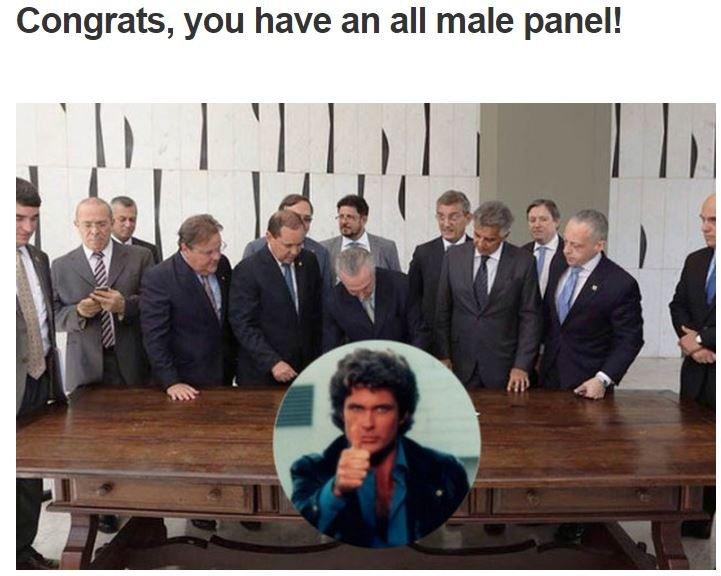
A Tumblr page has been set up documenting all male panels in recent months (credit Saara Särmä)
You might have heard the term "mansplaining, external", but how much thought have you given to all-male panels of experts expressing their opinions on one subject or another? Possibly not all that much, if you're not a regular at such events, but in recent months increasing numbers of high-profile men have been speaking up against the all-male panel at conferences.
Earlier this month, some of Australia's most-booked male conference speakers criticised organisers for setting up "dude fests", external. They pledged to boycott panels that don't include women and set up a website called "No thanks, mate"., external That's not the only promised boycott. Over the Pacific in America, Sree Sreenivasan, the Chief Digital Officer at the Metropolitan Museum of Art, wrote a Facebook post, external promising that he will no longer take part in panels that are made up of all men.
Sreenivasan wrote that he was acting on a pledge he had made to his daughter: "I won't speak on any all male panels (one-on-one chats are occasionally OK). Upgraded now to include not ATTENDING all male panels. How do we make this into a mini-movement?"
Lecturer Tobias Denskus, external also highlighted the issue in a much-shared blog, external after seeing a photo of 25 men speaking about "inclusiveness" at an Asian Development Bank meeting last year.
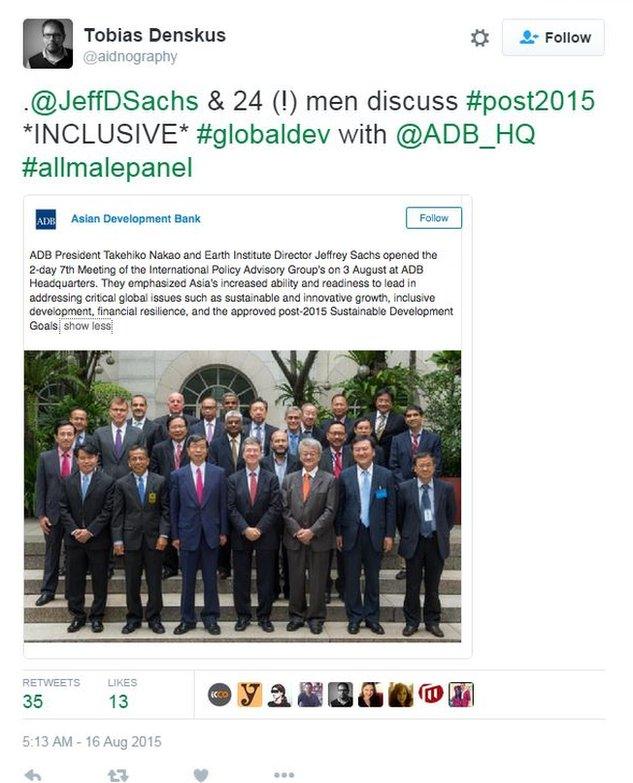
Panel of 25 men discuss "inclusiveness" at the Asian Development Bank forum in 2015
Denskus told BBC Trending that the subject has been on his mind for a while: "Ever since all-male panels have been discussed, including by Owen Barder, external, very little has changed in academia, policy and development." He added that the long-standing issue was becoming more visible in the digital age; "there is more and better evidence now on social media, for example"
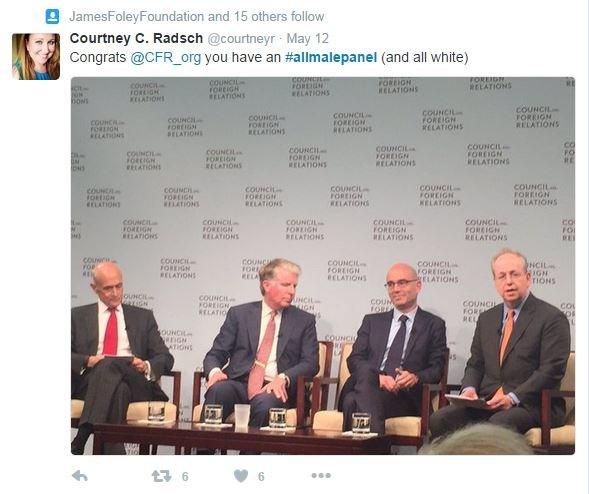
The cheeky Tumblr blog 'Congrats, you have an all male panel, external!' has been viewed more than 140,000 times, and updated almost weekly with examples of men dominating public talks. Similarly, the hashtag #allmalepanels has been tweeted thousands of times since around 2013, external, but it began trending on a few occasions this year, especially in the international development and aid sector — where, ironically, women make up around 75% of the workforce, external.
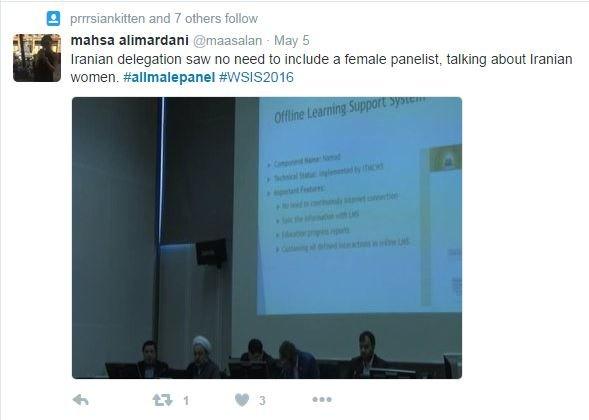
There's been no empirical study done on the subject - just personal observations. But the instances of these observations have become too regular to ignore. The Washington Post found, external that at more than 200 Middle East-focused events hosted in 2014, 65% featured no women on stage. Foreign Policy found, external that at this year's World Economic Forum, 'only 23% of the speakers and moderators were women, and 20% of the panels'. However, the word "women" was the third-most tweeted topic at the conference (with over 10,000 tweets).
Another heavily tweeted about subject is that of Britain's upcoming referendum on 23 June about whether or not to remain in the European Union. As part of the public debate ahead of the vote, the Global Diplomatic Forum is this week staging a panel discussion, external in London with this cast:


Trending gave the organisers of the event a call and asked why there were no women on the panel. "We try very very hard to cast female speakers. No women accepted our invite on this occasion. We do struggle to get women. It's not for lack of trying," the female event organiser told us. She later added that "on average, over 35% of our speakers are female each year."
However, if you think that organisers simply don't have the option when it comes to female experts, mathematician Greg Martin, gave an interview with the Atlantic, external where he said that most all-male panels are, in fact, statistically quite unlikely.
"If conference speakers were being chosen by a system that treated gender fairly (which is to say, gender was never a factor at all), then in any conference with over 10 speakers, say, it would be extremely rare to have no female speakers at all - less than 5% chance," he said.
Blog by Megha Mohan, external
Next story: Is this picture disgusting or beautiful?
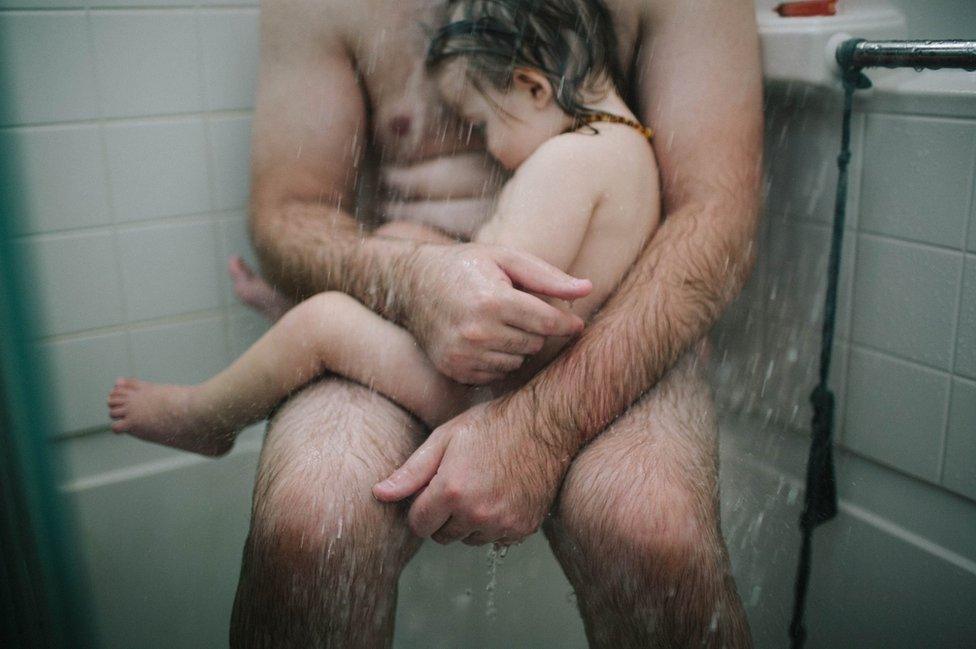
This picture of father holding his sick son has fiercely divided opinion on social media. READ MORE
You can follow BBC Trending on Twitter @BBCtrending, external, and find us on Facebook, external. All our stories are at bbc.com/trending.